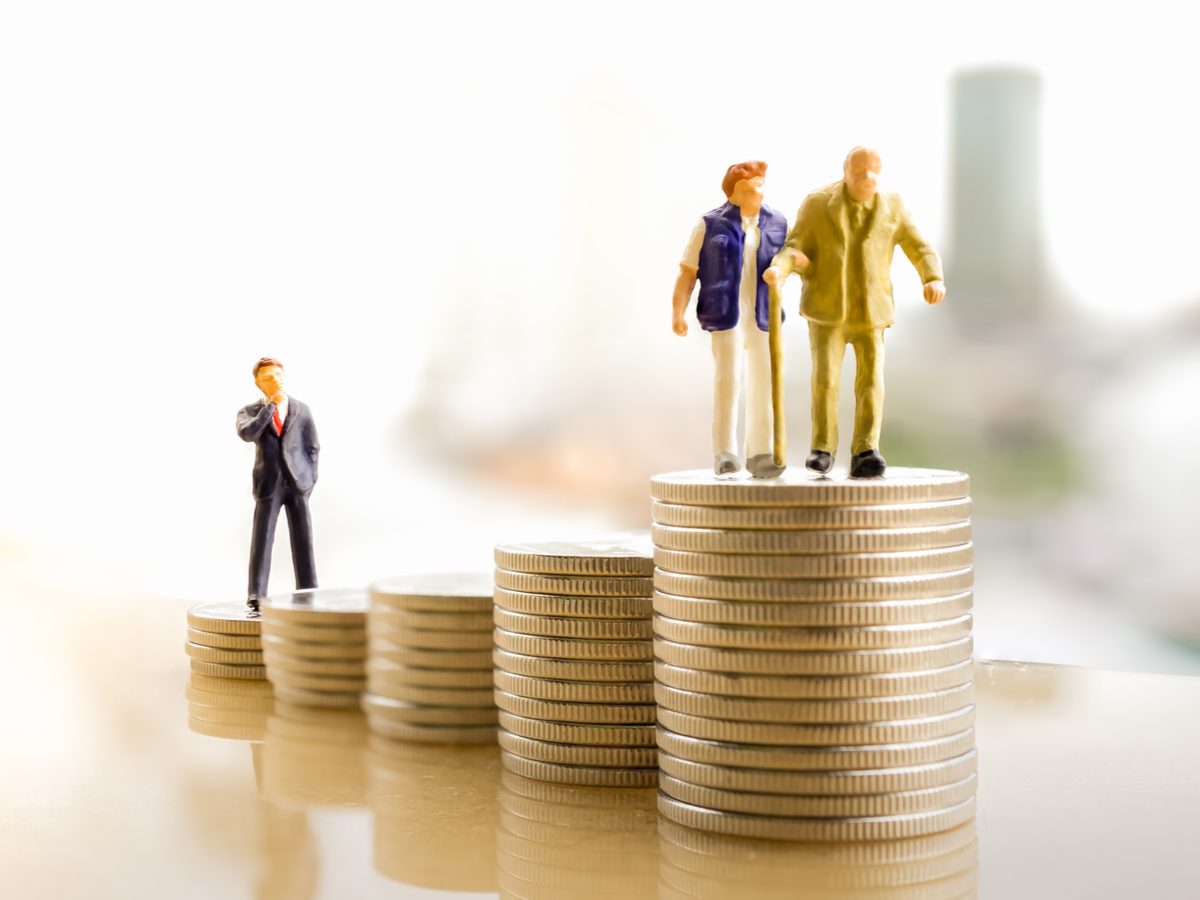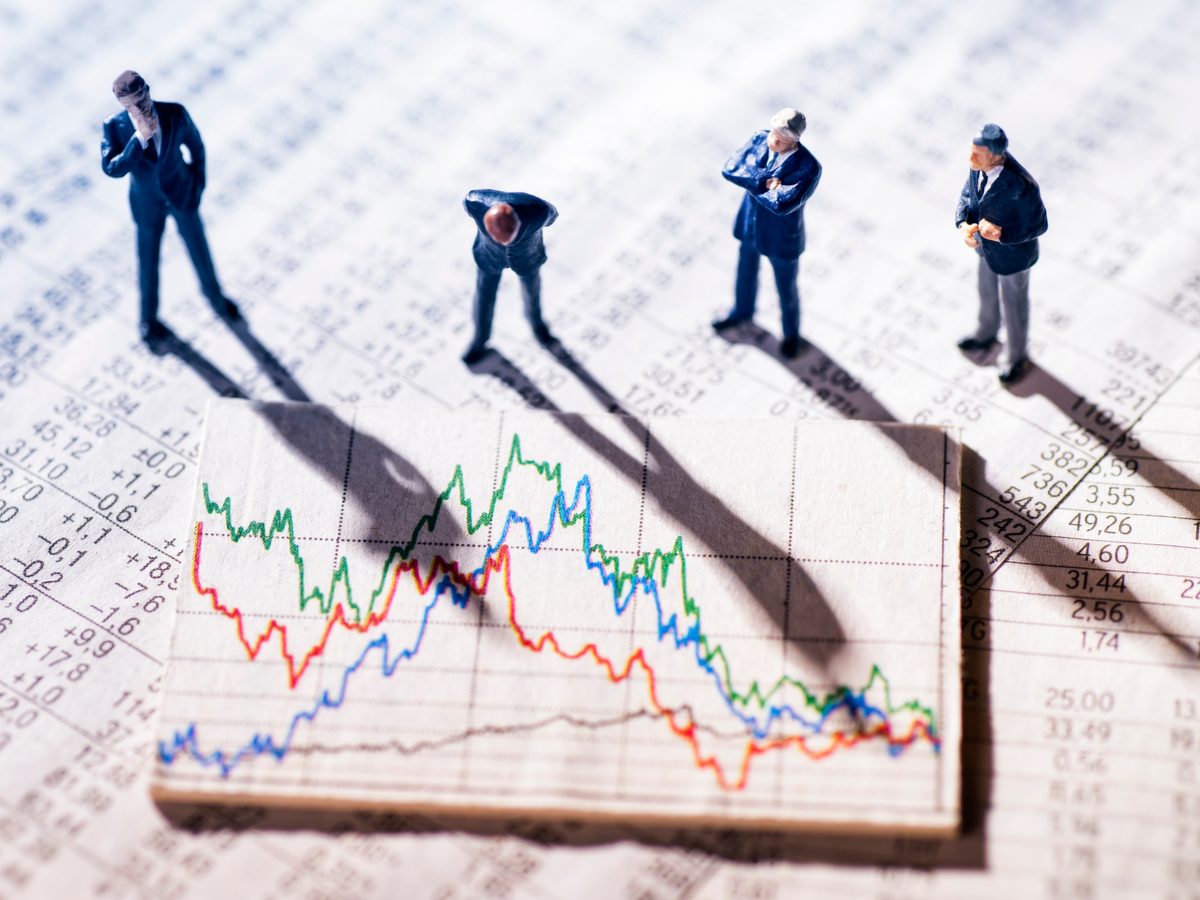
Financial crisis tips for each life stage
It seems like ages ago now, but the night of this past February 25 was one I’ll never forget. Earlier in the day, my wife and I had paid a photographer a $1,000 deposit for my daughter’s bat mitzvah in August. We had to make some other payments, too, and it suddenly occurred to me that some bigger bills for the event would be due soon.
That week, thanks to growing concerns over COVID-19, our bat mitzvah savings, which were around $40,000 and tied up in a mostly stock-filled tax-free savings account (TFSA), fell by about 7 per cent. I began to panic: what if it falls further and I can’t afford to have the party?
The next morning, I moved all of the money in that account out of stocks and into cash, avoiding a steeper loss as the market fell by close to 30 per cent over the next few weeks. While I’m still hoping that money can be used for the bat mitzvah—if it doesn’t have to be cancelled, that is—I’m also happy that I now have a cushion of cash in case my income disappears.
What I didn’t do was sell my retirement assets held in a registered retirement savings plan (RRSP), which lost thousands of dollars in March. Fortunately, I turned 40 this past February, so it’s likely that I’ll make that money back and then some by the time I retire—as long as there’s not another unexpected catastrophe, of course.
For my father, a 66-year-old project manager who still takes on freelance contracts, the timing of this crisis is more worrisome. If the market doesn’t rebound in the next couple of years, the hit to his savings could force him to scale back some of his retirement plans.
Clearly, it doesn’t matter your age: the COVID-19 crisis has impacted everyone’s savings, investments and earning power. What you can do about it depends on how much time you have left before you punch your last clock.

What if my career is just getting going?
In some ways, the youngest group of savers—people between 25 and 39—are in the best shape during and following a crisis, says Allan Small, a senior investment advisor at Toronto’s Allan Small Financial Group. Many of them are just starting to save and so they may not have as much money in stocks, which rise and fall more dramatically than a savings account. Whatever they do have in stocks, though, has plenty of time to recover from the fall. “Investments will not go to zero and we will get through this,” says Small.
Although it may seem counter-intuitive, Small’s advice for this group is to start putting money into the stock market if they haven’t already. In 2008, during the last financial crisis, many investment portfolios lost close to half their value, but those who stayed invested were rewarded: Between March 9, 2009, the day the market bottomed, and February 21, 2020, the day the current crisis began, stock markets in Canada and the United States were up 137 per cent and 398 per cent, respectively.
“Take this opportunity to buy,” says Small. “We’re not going back to living in caves. When we recover, stocks from good quality companies, and Canadian banks, will do well.” In this way, he says, people who are just starting to save can use this crisis to set themselves up for retirement.

What if there’s something I need right now?
It’s true, many early income earners have goals that aren’t as far away as retirement—like a house, a wedding, a child or a new car. If, like me, you’d been saving for one of these in a TFSA heavy in stocks, it’s possible that some of those plans will have to be put on hold. If the expense is not one you can delay, though, there is one upside to the crisis. “If someone wants to make a big purchase, interest rates are low and that makes borrowing attractive right now,” says Jason Heath, managing director of Objective Financial Partners in Markham, Ont. “You just have to keep in mind that rates are low because the economy is weak, and taking on more debt at a time when we are entering a recession is risky.” He suggests creating a detailed budget to make sure you’ll be able to definitely pay back a line of credit debt before going that route.
If you have a bit of time to save for your goal, Heath advises putting whatever you can into a high-interest savings account. Despite its name, the interest won’t be very high—maybe 2 per cent or so, depending on the financial institution—but you won’t lose anything either if the market keeps going down. For those with credit card debt, however, it’s always best to pay that down first, as a savings account will never bring in more than most credit cards charge in monthly interest.

What if I’m at the height of my earning power?
If you’re in your 40s and 50s, you’re probably earning more than you did in the previous decade, which means you’re hopefully saving more, too. Considering you’re still 10 to 20 years away from retirement, your RRSP may be more invested in stocks than bonds—the former being riskier, but worth it if you can ride the market’s ups and downs. If that’s the case, and you’ve taken a peek at your investment account recently, you’ve seen your assets plummet by thousands of dollars. So, what now?
The first step is to make sure your financial house is in order. With job losses rapidly rising across the country, you’ll want to be prepared for a potential hit to your income, paying down credit card debt and paring back on expenses wherever possible. As with the early income earners, if there are large, unavoidable costs coming up in the weeks or months ahead, put whatever money you can into a high-interest savings account so it stays out of the stock market, which could continue to fall if COVID-19 doesn’t improve as quickly as expected
If you are continuing to bring money in, don’t stop saving—a drop in the market can give you an opportunity to buy stocks at a cheaper price. Again, if you purchase inexpensive stocks now, you will, in theory, make money as those shares climb back up. If you’ve reached this age and have never held stocks, now’s a good time to talk to a financial planner to see if getting into the market is right for you.
When it comes to investing in stocks, most experts recommend putting just a little bit of money into the stock market every month—a strategy called “dollar-cost averaging.” Say you have $12,000 in cash that you’d like to invest. You would split that up into 12 equal payments and invest $1,000 per month rather than all at once. If the COVID-19 crisis causes the market to fall that month, you’ve only put $1,000 in so your next $1,000 can be spent on even less expensive stocks. If the market sees a sustained rebound before you’ve invested all your money, you’ll have missed out on some gains but it’s still better to be cautious in a destabilized economy.
Of course, most people in mid-career who are already invested likely have a balance of stocks and bonds (which tend to rise when stocks fall) in their portfolio. As the stocks portion of those savings goes down, and if you’re still feeling okay about taking some risk, you can move funds from the bond part of your portfolio into stocks to keep the balance as it was.

What if I’m about to retire or already punched my last clock?
People like my dad—near retirement or already retired—may imminently need the money they’ve saved. The first step is to take a deep breath. Many people, including anyone who is already in retirement, have more time to recover from losses than they think.
For anyone who was able to save the recommended 10 per cent of your income as you went along, you’re not pulling all of your money out of your RRSP or your registered retirement income fund (RRIF) all at once. “A lot of older people think their stocks don’t have time to recover,” says Small. “But unless you need it all, then it does have time to rise again.”
According to MarketWatch, bear markets—a term used to describe a market decline of at least 20 per cent that lasts at least two months—take, on average, 18 months to go from a pre-crisis high to a low point, at which time those stocks start to climb again. Past bear markets have taken anywhere from two to seven years to reach new all-time highs. So if you can leave at least some of your money in the market for five to 10 years, then it should come back to where it was before the COVID-19 crisis began.
To support the older set in this exact situation, the Canadian government, as part of its COVID-19 financial relief plans, reduced the amount of money that retirees must remove from their RRIF by 25 per cent. (Previously, you had to remove 5.28 per cent from a RRIF at age 71; now it’s 3.96 per cent.) The change allows people to leave more money in the market so that their savings have more time to recover, explains Small.

What if I didn’t save enough?
Some retired or nearly retired people may need to find more cash to cover their day-to-day expenses, even if they still have many years left to live. Perhaps they didn’t save enough or their portfolios were more concentrated to stocks than bonds than they should have been at this late stage of life. If this is you, then you may have to delay your retirement or, if you’re already retired, find a part-time job to make up for lost savings. That’s what many people had to do after the Great Recession of 2008.
You won’t be alone. A study by Brooke Helppie McFall, an economist at the University of Michigan Institute for Social Research, found that 40 per cent of older Americans postponed their retirement after that recession.
At least for the moment, though, scaling back expenses is easier than usual: the COVID-19 lockdown means that retirees aren’t spending as much, especially when it comes to travel. If that’s the case, you can use those unused dollars for daily purchases, or put it into a high interest savings account, which you can tap into later on to cover any unexpected expenses.

Is my pension safe?
Unfortunately, the value of pension investments has fallen, too. If you’re still working and making contributions into one, don’t stop. If you think you’re at a real risk of losing your job and would rather have that money in your pocket, then you can either reduce the amount of money you put towards your pension or stop contributing entirely. Remember, though, pension payments come right off your paycheque, so it’s not money you’re used to spending anyway. “It’s forced investing,” says Rona Birenbaum, a certified financial planner with Toronto’s Caring for Clients. “And that’s always a good thing.”
For everyone, it’s a good time to review your pension plan investments online, as you may have signed up for one years ago. Fortunately, today’s most popular options are called “target date funds,” which automatically get more conservative as you get older. If you’re in one, then you may have lost less than you think. If your plan was instead overly weighted towards stock-heavy equity mutual funds, then you may want to find different funds to invest in at this time.

So everything’s going to be okay?
Saving and investing in a time of crisis is not easy. But no matter how old you are, if you stay invested and if you’re able to continue saving, then you’ll come out farther ahead when the rebound comes.
That’s my plan and it’s one I’m imparting on my dad, even though we’ve both had more than a few sleepless nights. As Birenbaum says: “Those who can invest through this time will be glad they did. And to those who can’t shouldn’t worry—they will get another opportunity in the future.”
Next, find out how much COVID-19 has cost the world so far.